Drone Laws in Virginia

Even if you are following the strict rules and regulations for drones that have been put in place by the FAA, you may not be following any existing laws and/or rules that are set by the state you are flying in.
More Resources
This article will give a brief overview of the laws in your state, but we can’t keep cover all the minutae in only two thousand words. That’s why we highly recommend that you do some research on your own time and, ideally, enroll in a professional course if you’re actually looking to get certified. Though there’s lots of options for learning more about drone laws, we highly recommend the#1 Rated Professional Course: Drone Pilot Ground School. Get $50 Off as a Dronethusiast reader, just click the link and sign up. It’s a great way to learn about drone laws and piloting that’s cheaper than most of its competition, you can purchase it once and own it forever and they’re constantly updating their professional training.
All that said, let’s move on to the important stuff.
Flying Over Virginia

Unfortunately, it’s very unclear where Virginia drone users can legally fly their drones without issues. A lot of the apps used for mapping safe drone zones show NO FLY ZONE when users were told by friends otherwise, so it’s very unclear where flying is allowed legally.
Because of this, we suggest you inquire directly with wherever you plan on flying, or ask other residential drone users that you know personally for ideas on where you can legally fly a drone in Virginia.
The Registering Process in Virginia
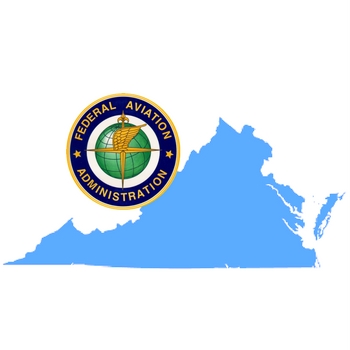
The Federal Aviation Administration (FAA) requires that all Small Unmanned Aircraft Systems (UAS) owners follow strict regulations and laws. You will need to file your name, home address and your email address as a start.
From there, you will receive a Certificate of Aircraft Registration and Proof of Ownership. These will include an identification number for your aircraft. You must have this number displayed on your drone at all times. The number will be valid for up to 3 years.
All aircraft that weighs more than 0.55 pounds, or 250 grams, and less than 55 pounds, or 25 kilograms, must be registered. This also includes any added payloads, such as an onboard camera.
You must be at least 13-years-old in order to register and, effective December 21st, 2015, all newly purchased or made drones must be registered before their first flight. You are able to register through a paper-based process, but you can also do so online by clicking here.
Proximity to Airports in Virginia
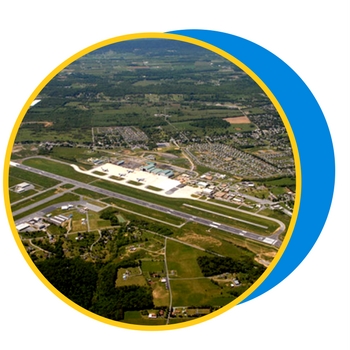
As a general rule of thumb, and in accordance with the law from the FAA, you may not fly within a 5-mile radius of any airport. In 2012 the FAA enacted the Modernization and Reauthorization Act which requires hobbyist drone operators, meaning residential, to contact air traffic control and/or airport management if they are operating within a 5-mile radius of any local airport.
This is enacted nationwide, not only in Virginia, under Part 101 of the Act, being Special Rule for Model Aircraft, to ensure that drone operations under unsafe conditions are disapproved before the drone can be launched.
Regardless of the local airport you will be flying near, and possibly breaching airspace, you will need to contact either the airport air traffic control tower or the airport operator.
You will need to establish an agreed-upon operating procedure with airport air traffic or the airport operator and answer a couple of questions. For example, questions relating to how long you are going to be flying for.
Unique Drone Laws in Virginia
At this time of writing, all of the legal information listed below is deemed as accurate as possible and fully in effect.
Virginia Acts of Assembly – Chapter 18.2-130.1
An Act to amend the Code of Virginia by adding a section numbered 18.2-130.1, relating to the use of electronic device to trespass; peeping into dwelling or occupied building; penalty.
Be it enacted by the General Assembly of Virginia:
That the Code of Virginia is amended by adding a section numbered 182.130.1 as follows:
§ 18.2-130.1. Peeping or spying into dwelling or occupied building by electronic device; penalty.
It is unlawful for any person to knowingly and intentionally cause an electronic device to enter the property of another to secretly or furtively peep or spy or attempt to peep or spy into or through a window, door, or other aperture of any building, structure, or other enclosure occupied or intended for occupancy as a dwelling, whether or not such building, structure or enclosure is permanently situated or transportable and whether or not such occupancy is permanent or temporary; or to do the same, without just cause, upon property owned by him and leaser or rented to another under circumstances that would violate the occupant’s reasonable expectation or privacy. A violation of this section is a Class 1 misdemeanor. The provisions of this section shall not apply to a lawful criminal investigation.
Virginia Acts of Assembly – Chapter § 27-151.1
An Act to amend and reenact § 27-15.1 of the Code of Virginia, relating to the authority of a fire chief over unmanned aircraft at a fire, explosion, or other hazardous situation.
Be it enacted by the General Assembly of Virginia:
That § 27-15.1 of the Code of Virginia is amended and reenacted as follows:
§ 27-51.1. Authority of chief or other officer in charge when answering alarm; penalty for refusal to obey orders.
While any fire department or fire company is in the process of answering an alarm where there is imminent danger or the actual occurrence of fire or explosion or the uncontrolled release of hazardous materials that threaten life or property and returning to the station, the chief or other officer in charge or such fire department or fire company at that time shall have the authority to
(i) maintain order at such emergency incident or its vicinity, including the immediate airspace;
The fire chief of other officer in charge shall display his firefighter’s badge or other proper means of identification. Notwithstanding any other provision of the law, this authority shall extend to the activation of traffic control signals designed to facilitate the safe egress and ingress of emergency equipment at a fire station.
Any person or persons refusing to obey the orders of the chief or other officer in charge at that time is guilty of a Class 4 misdemeanor. The chief of other officer in charge shall have the power to make arrests for violation of the provisions of this section.
HB 2125 Use of unmanned aircraft systems; search warrant required.
Replaces the moratorium currently set to expire on July 1, 2015 on the use of unmanned aircraft systems by state and local law-enforcement and regulatory entities, except in defined emergency situations or in training exercises related to such situations, with an absolute prohibition on the use of unmanned aircraft systems by such law-enforcement and regulatory entities unless a search warrant has been obtained prior to such use.
The warrant requirement does not apply to
(i) utilization of such systems to support the Commonwealth for purposes other than law enforcement;
(ii) certain search and rescue operations;
(iii) certain Virginia National Guard and United States Armed Forces functions;
(iv) research and development conducted by institutions of higher education or other research organizations; or
(v) the use of unmanned aircraft systems for private, commercial, or recreational use.
§ 15.2-926.3. Local regulation of certain aircraft.
No locality may regulate the use of privately owned, unmanned aircraft system as defined in § 19.2-60.1 within its boundaries.
Senate Bill No. 729
Be it enacted by the General Assembly of Virginia:
1. That the Code of Virginia is amended by adding a section numbered 18.2-462.2 as follows:
§18.2-462.2. Use of unmanned aircraft system to commit crime; while obstructing certain officials; penalty.
Any person who knowingly uses or attempts to use an unmanned aircraft system as defined in §19.2-60.1 (i) to commit or attempt to commit a crime, (ii) while obstructing or attempting to obstruct the delivery of emergency medical services by emergency medical services agency personnel, or (iii) while obstructing or attempting to obstruct any law-enforcement officer or animal control officer in the performance of his duties is guilty of a Class 1 misdemeanor. A violation of this section is a separate and distinct offense.
§ 10.1-101. Powers of the Department
B. Pursuant to the Administrative Process Act (§ 2.2-4000 et seq.), the Department may promulgate regulations necessary to carry out the purposes and provisions of this subtitle. A violation of any regulation shall constitute a Class 1 misdemeanor, unless a different penalty is prescribed by the Code of Virginia. However, a violation of the Virginia State Park Regulations (4VAC5-30) shall constitute a Class 3 misdemeanor.
Other Legal Issues With Drones in Virginia
All drones are banned in any state park within the state of Virginia, as you will find out below.
§ 10.1-104 Powers of the Department – 4VAC5-30-400. Aviation.
No person shall voluntarily bring, land or cause to descend or alight within or upon any park, any airplane, remote control model aircraft, flying machine, balloon, parachute or other apparatus for aviation. “Voluntarily” in this connection shall mean anything other than a forced landing.
Virginia Beach Parks & Recreation 2017 Park Regulations
Flying motor-powered or remote-controlled aircraft, rockets, gliders, or any unmanned aircraft systems are prohibited.
FAQ on Virginia Law and Drones
If you do not see your question, or an answer to it, listed below, feel free to get in touch with us and we’ll gladly give you one.
Is a drone/UAS considered the same as a model aircraft?
The United States Congress has defined and concluded that a model aircraft is only considered a drone or a UAS when the following points are met:
– It’s flown for recreational purposes or as a hobby and not for any business or commercial reasons
– It’s flown within visible distance, meaning being able to see it at all times, of the individual operating it
– It’s capable of sustaining flight within the atmosphere, meaning that it can fly
If your model aircraft, regardless of whether or not you acquired it pre-built or built it yourself, meets the above points to your knowledge, it’s considered a drone/UAS.
What is the Small UAS Rule?
The Small UAS Rule requires those who have unmanned aircraft systems, or UAS, that weigh less than 55 pounds, payload included, to register their aircraft with the FAA. This only applies to recreational or hobby fliers and not commercial drone use, however.
Is the FAA’s Small UAS Rule still in effect?
Yes, it has been in effect from August 29th of 2016 and is still in effect at this time of writing.
Do I have to carry my Certificate of Aircraft Registration while flying my UAS at all times?
Yes, you must have the registration certificate from the FAA at all times during flight operation. In accordance with federal law, all UAS operators must show their certificate of registration to any local, state, or federal law enforcement officer when they are asked to do so.
What do I do for registration if my UAS is over the 55-pound limit?
If your UAS weighs more than 55 pounds, including payload, you will need to register it by clicking here.

Drone Laws in Virginia
Knowing the laws, regulations, restrictions, etc., regarding drones in your state is extremely important. Remember to educate yourself, follow the rules, fly safely and responsibly, and have fun!

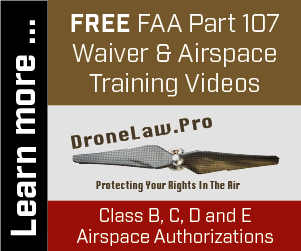
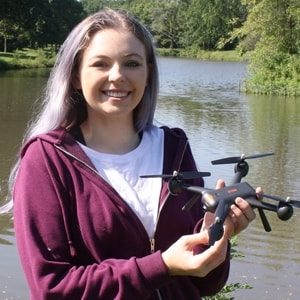

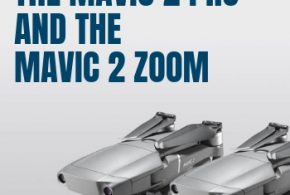
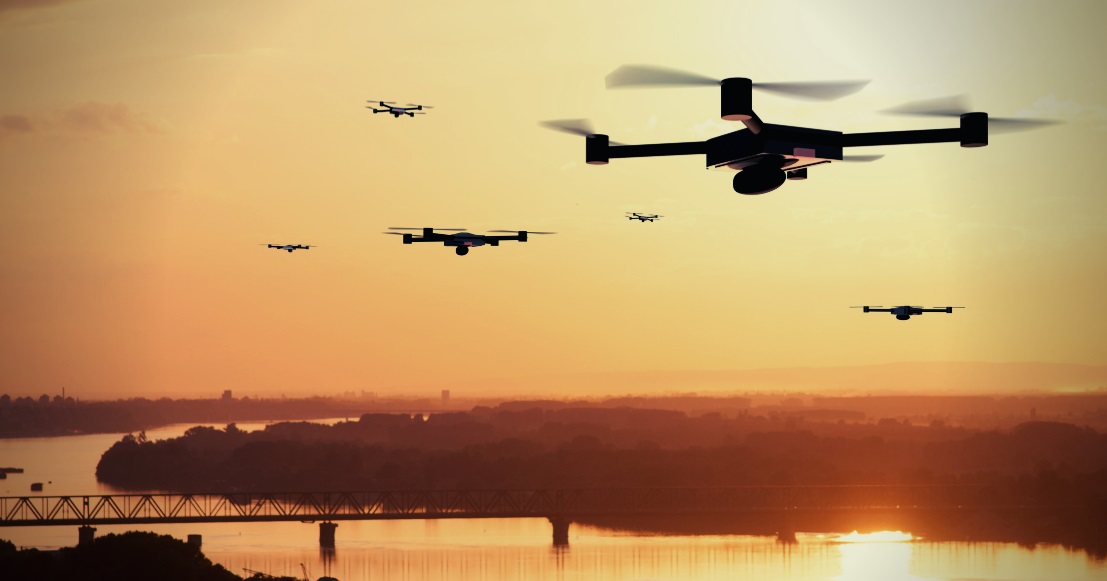
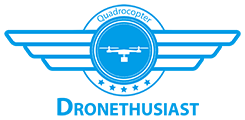
Is it legal for my neighbor to fly his drone that is equipped with a camera around my property and record us and to fly it out of his line of sight?
The drone, by law Must be with in visual sight of the operator or his appointed observer with out the use of binoculars
“The Small UAS Rule requires those who have unmanned aircraft systems, or UAS, that weigh less than 55 pounds, payload included, to register their aircraft with the FAA. This only applies to recreational or hobby fliers and not commercial drone use, however. ”
Is that right? is that backward? I thought it was only the commercial users not the recreational users that have to register…..
You must register your drone for recreational use (On line cost $5.00) Under part 107 used for commercial drones there is a Test that will cost you a few hundred dollars The test is about 2 to 3 hours long
You need to register if you are a hobbyist.
If the UAS is .55 to under 55 lbs, you have to register with the FAA and obtain a unique registration number. The registration must be kept on you at all times. Both hobbyist and commercial have to register their aircraft. I think commercial has to register each aircraft they own, not a blanket registration.
Isn’t the Virginia Beach parks law a violation of the State law prohibiting localities from making their own laws?
I was looking forward to flying in VA Beach this summer, but sounds like a no-go. I’m guessing because there is an Air Force Base nearby and it probably could interfere, so it’s probably a state law rather than a local law.
Naval Air Station.. And they are constantly flying…. They also have no sense of humor when it comes to the safety of their aircraft. Find somewhere else to fly because we were here first is the motto of the U.S. Navy…
Yes it should be since no locality can override a State law
For 5mos now, there are two drones that always follow me n my daughter around watching every move we make even follow us down the road and right outside our home! What can I do abt this?
18.2-130.1. Peeping or spying into dwelling or occupied building by electronic device; penalty.
It is unlawful for any person to knowingly and intentionally cause an electronic device to enter the property of another to secretly or furtively peep or spy or attempt to peep or spy into or through a window, door, or other aperture of any building, structure, or other enclosure occupied or intended for occupancy as a dwelling, whether or not such building, structure or enclosure is permanently situated or transportable and whether or not such occupancy is permanent or temporary; or to do the same, without just cause, upon property owned by him and leaser or rented to another under circumstances that would violate the occupant’s reasonable expectation or privacy. A violation of this section is a Class 1 misdemeanor. The provisions of this section shall not apply to a lawful criminal investigation
Im curious about drone laws as they relate to hunting and scouting game on Virginia Sate Forests and Game Management areas. Its very hard to locate game on public lands, and a drone could be a very effective tool. Can I fly a drone to scout or locate game on public lands in virginia?
I’m having a real hard time finding a location where getting better at flying a drone using manual control is possible. I live in central VA, and I’m not in any “no fly zone” but the commercial drone I have sets the top limit to 400ft as if I’m close to an airport (I’m not). I want to practice some advanced flying to be able to make better recordings/photos. Where can I practice this?
Down the road I want to FPV to get better control – or perhaps use a map to program a route around a subject.
I realize the rules currently state you have to have a visual on the done. FPV and that doesn’t “jive”. And even at 400ft it’s very very hard to see a small drone in the air. My controls are purely based on the camera view of the drone (or at least I want it to be). And since the drone is programmed to return home if LOS or other issues occur that’s a really weird requirement. Do I have to look into a professional license to operate a drone this way?
If you’re in VA and know of a good place to not only fly but meet fellow drone fliers please share where you’re meeting.
You can download the app called AirMap. Simple registration. It shows you where you can and can’t fly. 400 ft limit is the limit everywhere. You cannot fly within 5 miles of an airport. At all.
Not exactly true. The 400’ limit does not apply when flying over a structure taller than 400’. You must be within 400’ horizontally and only go 400’ above the structure.
As for the 5 mile rule, you can fly within this radius if you have FAA authorization. Apps like Kittyhawk can easily help you get authorization in literally a few seconds if the airport is equipped with LAANC.
Hello, where in Williamsburg, James City County, or York County can I fly a Mavic Pro 2 legally? I want to practice my piloting skills.
I would just use Airmap. It tells you if your location is permissible to fly.
Who should I contact to get local regulatory guidance on drone flying in Bristol Va area.